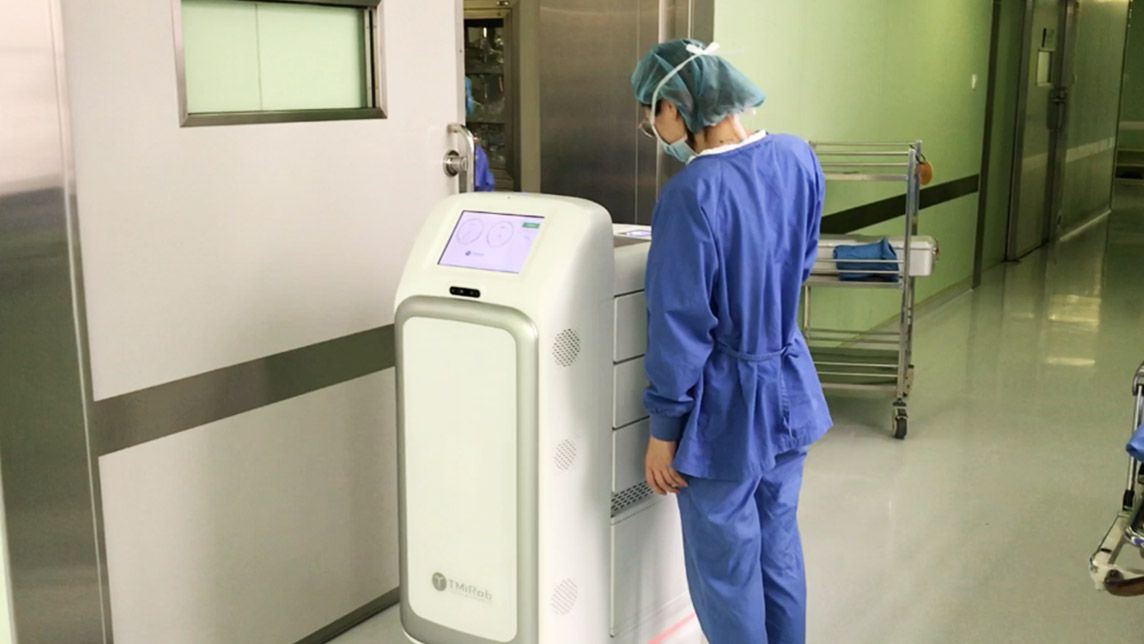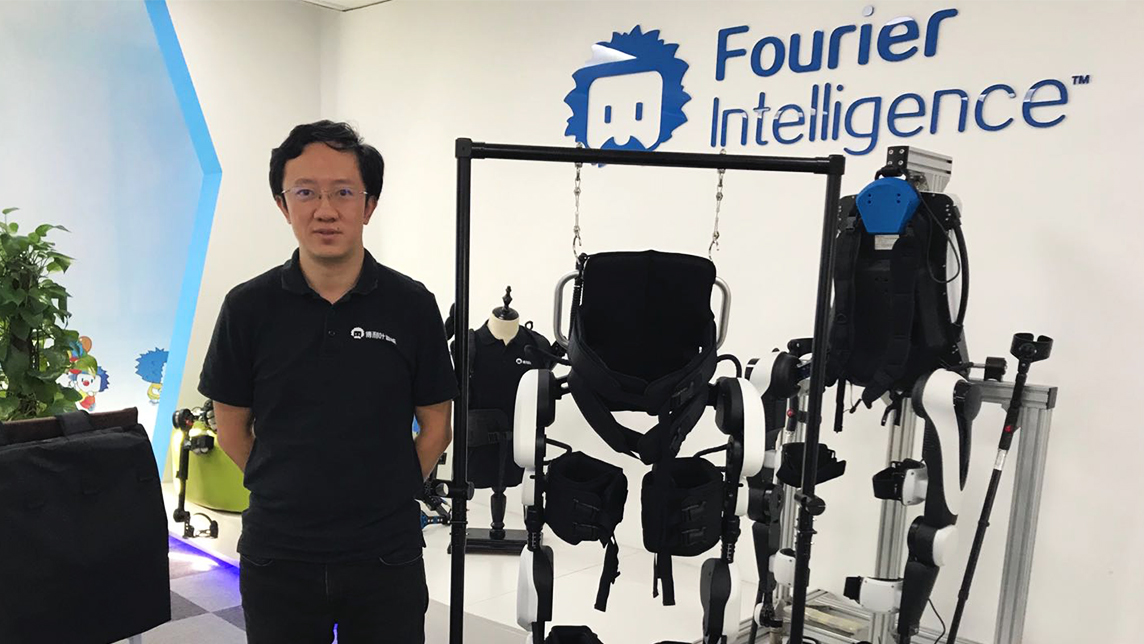From industrial machines to drones and Go-Pro cameras, Chinese robotics pioneer Professor Li Zexiang wants to infuse business into the laboratories of academia.
“Most tech startups in China are founded by experienced businessmen, with only a very small portion by academics,” he said. “Hong Kong has some top-ranking universities in terms of paper volume and impact, but few of the academic achievements have been translated into industrial output.”
After spending over a decade in academia, Li himself took a leap of faith and founded Googol Technology in Shenzhen in 1997. He was part of the first batch of Chinese students sent to the US in the 1980s to study robotics. In 1992, he joined Hong Kong University of Science and Technology (HKUST) as a professor in the faculty of Electrical and Computer Engineering. Five years later, he started Googol to produce motion controllers for machine manufacturers. Today, Googol controls the sector's biggest market share in China as the leader in industrial robotics.
Incubating the next-generation of talent and startups and propeling them to the global market is Li's vision for China's automation industry. The HKUST professor began supporting his first robotics startup in 2006. DJI was established in a stark 20sqm warehouse in Shenzhen by Frank Wang and two students from Li's tutorial group. DJI almost failed due to financial and personnel issues during its early days. The startup didn't have enough money to improve working conditions and many talented young engineers were scared away after visiting its office. Several employees also tried to steal its core technology and left to start their own businesses.
During that crucial period, Li used his personal connections to secure funding for DJI and recommended his best students to join and rebuild the tech team for the startup.
“Early investors including those from Singapore, Taiwan and Hong Kong were all my good friends,” he explained. “The startup is under the full control of the founding team. When facing problems, they come to me for advice,” said Li, who is also Chairman of DJI.
Innovative angel investor
In 2007, DJI launched its first product, a helicopter drone. The company continued to develop new drone products to gain a strong foothold in the market. Meanwhile, Li and Wang noticed that many of the drone customers also bought GoPro action cameras to make their own aerial camera systems. But the unreliable performance of the DIY aerial camera sets deterred them from buying more DJI drones.
Taking this as an opportunity rather than as a challenge, Li encouraged DJI’s team to develop their own all-in-one aerial camera set. DJI released Phantom in January 2013, its first ready-to-use aerial filming drone for everyone including those without DIY tech skills. The new Phantom series accelerated the expansion of DJI, pushing its revenue up to $130m in 2013 and capturing over 70% of the sector's market share in 2014.
Li and Wang received the 2019 IEEE Robotics and Automation Award “for contributions to the development and commercialization of civilian drones, aerial imaging technology, robotics engineering advancement, innovation and entrepreneurship.”
DJI was only one of the dozens of tech startups that Li has helped to achieve success. Yu Chunhua, co-founder of lightweight industrial robot developer QKM Technology, was grateful to Li for helping his team to obtain funding. “During the early days when we were short of money, Professor Li kept putting money in each time he received his paycheck,” Yu said.
Tao Shizheng, founder of electric outboard motor supplier ePropulsion, followed Li's advice and shifted production of the under-performing first-generation models to the propulsion system to get the business back on the right track. Like Frank Wang, both Tao and Yu are also alumni of HKUST, where Li still spends the majority of his time as lecturer and tutor.
Expanding China’s robotics ecosystem
In 2014, Li submitted a proposal to the municipal government of Dongguan, a city in Guangdong province. He recommended the building of a robotics industry base in the local Songshan Lake area to capitalize on Dongguan’s industrial supply chain advantage as one of China’s major export and manufacturing hubs.
“While attracting talented young people from nearby Hong Kong, the mainland and also foreign countries to help them realize their robotics startup dream, the hub could also incubate new hi-tech companies in the Songshan Lake area and Dongguan,” said Li.
He knew exactly what was needed to turn the idea into reality. “Building a robotics industrial base requires a large pool of innovative engineers with entrepreneurial competence. And that is a major weakness of Dongguan,” he said. The base shouldn't be just a startup incubator. He also wanted it to be a place to cultivate innovative talents in collaboration with colleges nationwide.
Xbot Park was constructed, operated and funded by Li's team. Since its inauguration in November 2014, the hub has incubated over 50 robotics and smart hardware startups across a wide range of sectors including agriculture, smart home, IoT, consumer goods, environmental protection and healthcare.
Using the Xbot Park model, he partnered with the founding and managing partner of Sequoia Capital China, Neil Shen, and with Hong Kong University Professor Chen Guanhua to establish the Hong Kong X-Tech Startup Platform in 2016. Its mission is to encourage entrepreneurship amongst talented youth and “propel Hong Kong into an international innovation and technology hub.”
Bringing robotics to his hometown
Whether at Xbot Park or X-Tech Platform, Li has always prioritized talent grooming. In early 2016, he started accelerating the intelligent manufacturing industry of Changsha, the capital of his home province Hunan, in central China. “The intelligent manufacturing industry has many opportunities. But the key issue is that we need talented people to propel the industry,” he said.
During the year-long discussion with Hunan University, he gave valuable advice on the development of a robotics talent cultivation and curriculum system. The School of Robotics was finally established at the university in April 2016. Later on, he was invited by the Changsha government to participate in the setting up of the Changsha Intelligent Driving Institute to specialize in self-driving mining trucks, heavy trucks for intercity logistics and public buses. He visited the US several times and finally persuaded Ma Wei, who was then the director of Acoustic Lab at Texas Instruments and a former director of System Research at National Semiconductor, to become the institute's CEO.
Launched in October 2017, the Changsha Intelligent Driving Institute generated revenue totaling over RMB 30m by mid-2019. As Chairman, Li played a major role in drawing up the institution's technology roadmap.
“We used to integrate talent cultivation with industries in Shenzhen. Now in Changsha, we're also building a similar ecosystem step by step starting with Hunan's School of Robotics and Changsha Institute,” he said.











